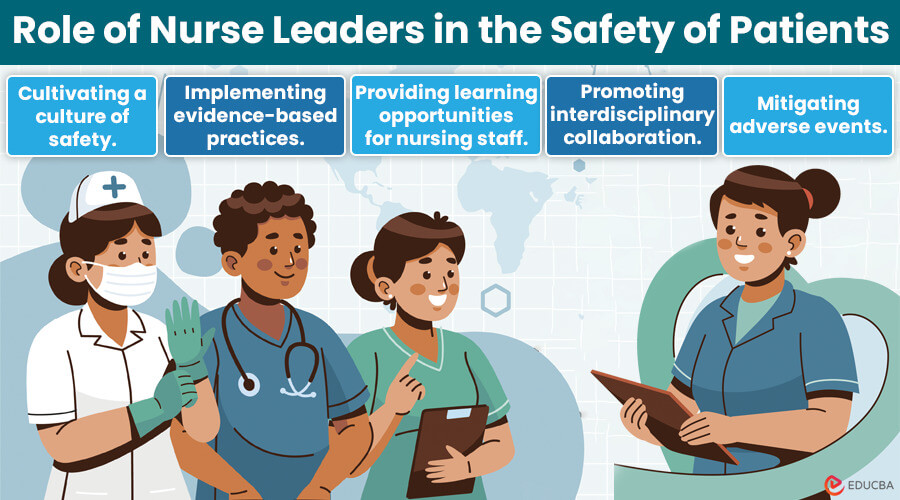What Does Nurse Leadership Mean?
Nurse leadership is a relatively new but crucial role in the medical field. Its primary focus is helping patients, care teams, and other medical professionals succeed by offering them compassionate support and guidance.
It aims to support new nurses in developing leadership skills, improving the quality of care they provide, and advancing their careers. Furthermore, nurse leaders play a vital role in this process.
Who are Nurse Leaders?
Nurse leaders are experienced nurses who take charge and guide others in the nursing profession by providing direction, support, and expertise to fellow nurses.
They play a crucial role in influencing healthcare organizations in various ways. They motivate their colleagues and establish a workplace culture emphasizing respect, safety, high ethical standards, and more.
Professors from the Medical College of Georgia and Georgia Prevention Institute researched and found that nurses who practice medicine after thorough nursing research provide better care (Source: NCBI). So, creating a great nursing research proposal is important for advancing in healthcare. If you want more nursing research proposal topics, check out MyAssignmentHelp.com, where experts can help you.
Role of Nurse Leadership in the Safety of Patients
Ensuring a safe environment in healthcare is crucial for the health and happiness of patients, staff, and the organization. That’s why nurse leaders need to prioritize safety protocols to make sure that their company prioritizes the well-being of patients and caregivers above all else.
Here are some of the roles a nurse leader plays in the safety of patients:
2. Implementing Evidence-Based Practices
Nurse leadership is crucial in implementing evidence-based practices in the healthcare sector. Nurse leaders keep up with the latest research and guidelines to inform policy development, standardize protocols, and streamline workflows for keeping patients safe. They also support new ideas and take the lead in improving quality, collaborating with various healthcare teams to address safety concerns.
3. Providing Learning Opportunities for Nursing Staff
Investing in ongoing education and professional development is important for enhancing clinical competence among nursing staff. Nurse leadership facilitates learning opportunities, mentorship programs, and skills workshops to ensure that nurses possess the knowledge, skills, and confidence to deliver safe, high-quality care. Nurse leaders empower their teams to adapt to evolving healthcare landscapes and navigate complex clinical scenarios with competence and resilience.
4. Promoting Interdisciplinary Collaboration
Everyone involved in healthcare needs to work together to ensure the safety of patients. Nurse leadership plays a critical role in bringing different healthcare professionals together and fostering respect, communication, and teamwork among them. They organize team meetings to discuss cases and projects to encourage effective collaboration and information sharing. By working together, healthcare teams can provide better care and improve patient outcomes.
5. Mitigating Adverse Events
Despite best efforts, adverse events may occur within healthcare settings. Nurse leadership is vital in handling any adverse events by conducting root cause analyses, implementing risk management strategies, and taking corrective actions. Nurse leaders transform adverse events into opportunities for system-wide improvement by making them an opportunity to learn from errors.
Final Thoughts
By promoting accountability, transparency, and collaboration, nurse leadership positively impacts the healthcare industry. They create a safe workplace environment that prioritizes patient safety and quality of care. Therefore, investing in nurse leadership is good not only for patients but also for the healthcare system as a whole.
Recommended Articles
We hope this article on “Nurse Leadership” was helpful to you. To learn more, refer to the articles below.

